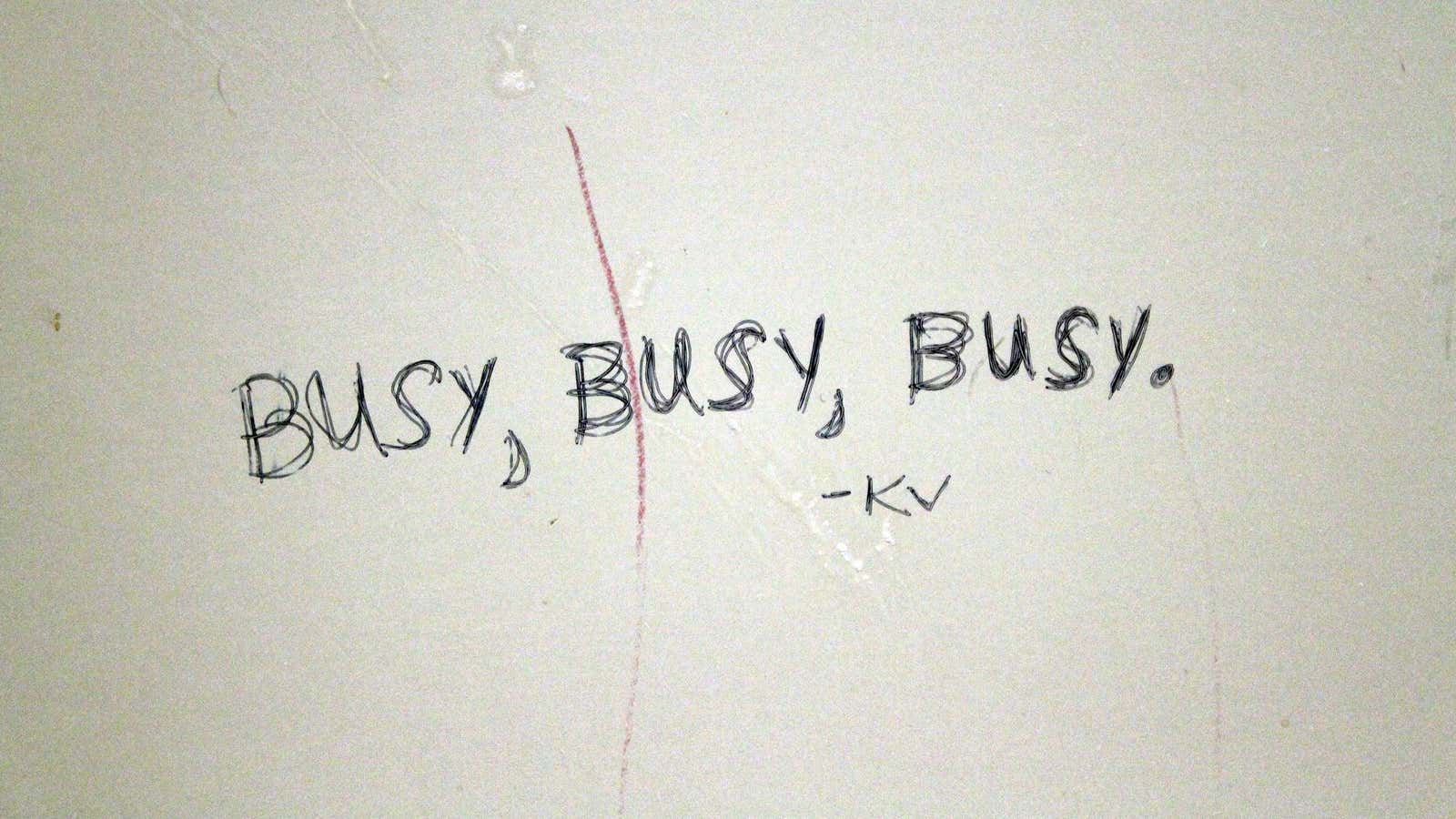“How are you?”
“Oh, you know, busy, busy.”
So goes a very common conversation in the US. But why, wondered researchers at Columbia and Harvard universities, is everyone suddenly humble-bragging about how busy they are? Just 100 years ago, bragging about leisure, not about how much you work, was a signal of importance and wealth.
In a series of experiments, the results of which will be published in an upcoming paper, researchers tested whether signaling “busyness” changes people’s social status.
One experiment asked participants to read about either a Jeff who “works long hours and his calendar is always full” or a Jeff who “does not work and has a leisurely lifestyle.” Other experiments tested whither signals of busyness could double as signals of status, much like luxury products. Participants read about a middle-aged shopper who either patronized a grocery delivery service like Peapod, the high-end grocery store Whole Foods, or control store Trader Joes. In another experiment, they read about either an Anne who listened to music on a Bluetooth headset (a sign of multitasking) or an Anne who listened to headphones.
Participants associated “busyness”and the accessories of busyness with high social status. They thought that Jeff was a higher status person when he was busy. They thought that the shopper who had groceries delivered had status on par with the shopper who went to notoriously expensive Whole Foods. And yes, they found Anne to be of higher status when she was wearing a Bluetooth headset. The study’s authors, Silvia Bellezza, Neeru Paharia, and Anat Keinan, outlined their findings in an article for the Harvard Business Review. They offer an idea about why the association between busyness and status might be:
What has changed so dramatically in one century? We think that the shift from leisure-as-status to busyness-as-status may be linked to the development of knowledge-intensive economies. In such economies, individuals who possess the human capital characteristics that employers or clients value (e.g., competence and ambition) are expected to be in high demand and short supply on the job market. Thus, by telling others that we are busy and working all the time, we are implicitly suggesting that we are sought after, which enhances our perceived status.
Participants’ beliefs about social mobility impacted how they associated busyness with status. In one study with an international participant pool, Italians were more likely to associate leisure, not busyness, with high status. “Americans are more likely to perceive that they live in a mobile society, where individual effort can move people up and down the status ladder, while the Italians are more likely to believe that they live in less mobile societies,” the researchers explain.
Photo by Quinn Dombrowski on Flickr, licensed under CC-BY_SA 2.0
